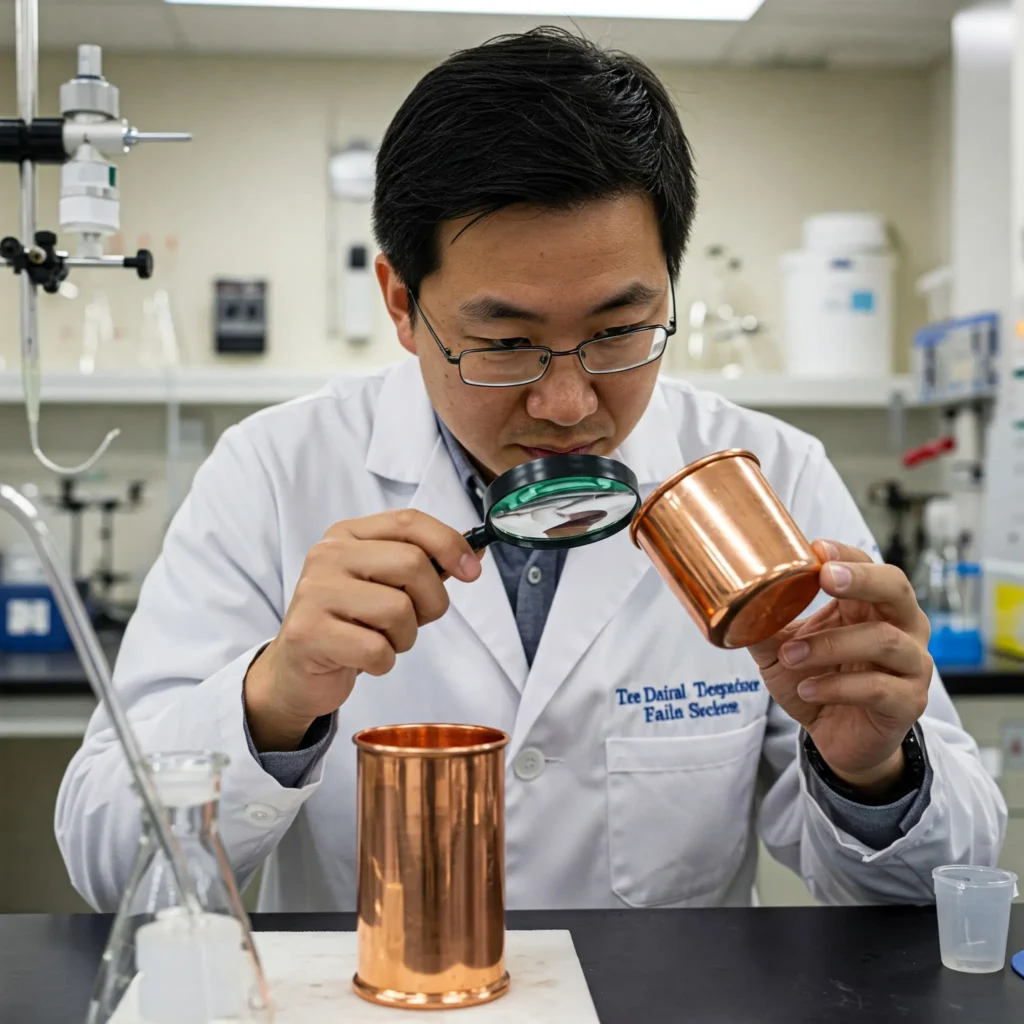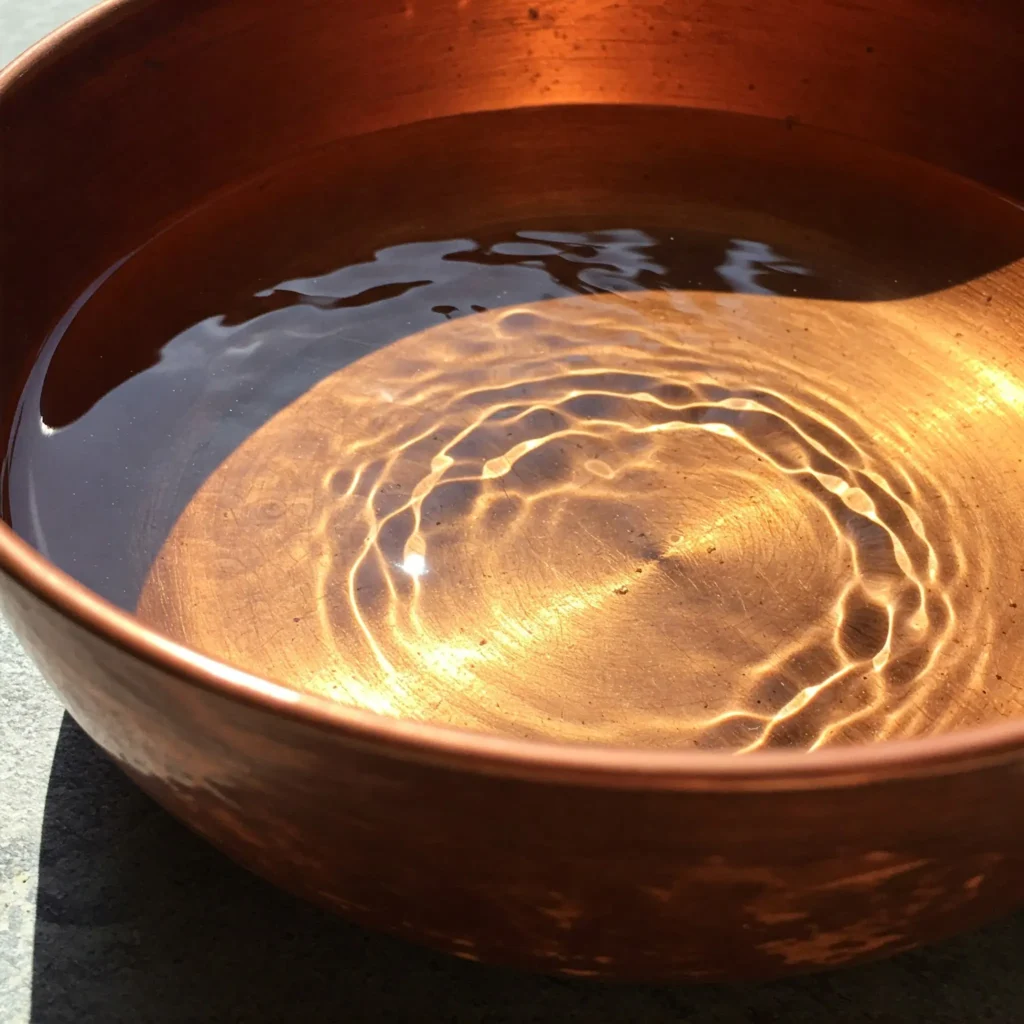The practice of storing water in copper vessels has a rich history, dating back centuries in ancient civilizations like India and Ayurveda. Copper, known for its antimicrobial properties, was believed to purify water and enhance its health benefits. Let’s delve into the traditional practices and beliefs surrounding copper water.
Ayurvedic Principles:
In Ayurveda, a traditional Indian system of medicine, copper is highly regarded for its therapeutic properties. It is believed that storing water in copper vessels overnight can help balance the body’s doshas (vital energies) and promote overall well-being. Ayurveda suggests that copper can help to:
- Purify water: Copper’s antimicrobial properties can help kill bacteria and other microorganisms present in water, making it safer for consumption.
- Improve digestion: Copper is believed to aid in digestion and absorption of nutrients.
- Boost immunity: Copper is an essential mineral for a healthy immune system, and consuming copper-infused water may help to strengthen immunity.
- Balance hormones: Copper is involved in the production of various hormones, and consuming copper-infused water may help to regulate hormone levels.
- Promote healthy skin: Copper is essential for collagen production, which is crucial for healthy skin. Consuming copper-infused water may help to improve skin health and reduce signs of aging.
Traditional Practices:
In many cultures, storing water in copper vessels overnight is a common practice. The water is typically consumed first thing in the morning on an empty stomach. Some people also add a pinch of Tulsi (holy basil) leaves to the water for enhanced benefits.

Modern Perspective:
While the traditional practices of using copper water are deeply rooted in ancient wisdom, modern scientific research is still exploring the full extent of its health benefits. Some studies have shown that storing water in copper vessels can indeed lead to a slight increase in copper levels in the water. However, more research is needed to confirm the specific health benefits and determine the optimal duration and conditions for storing water in copper vessels.
Important Considerations:
- It is important to use high-quality copper vessels that are free from any coatings or impurities.
- The amount of copper that leaches into the water depends on various factors, including the quality of the copper, the acidity of the water, and the duration of storage.
- Consuming excessive amounts of copper can lead to copper toxicity, so it is important to use copper water in moderation.
Alleged Benefits (Primarily from Traditional Practices):
- Antimicrobial Properties: Copper is known to have antimicrobial properties, and it’s suggested that storing water in copper vessels can help purify it.
- Improved Digestion: Some believe that copper water can stimulate digestion and promote better gut health.
- Boosted Immune System: Copper is an essential mineral that plays a role in immune function, so it’s suggested that copper water can support the immune system.
- Anti-inflammatory Effects: Copper has anti-inflammatory properties, and some believe that copper water can help reduce inflammation in the body.
- Antioxidant Properties: Copper is involved in antioxidant processes, and some suggest that copper water can provide antioxidant benefits.

Important Considerations and Scientific Perspective:
- Essential Mineral: Copper is indeed an essential mineral, meaning our bodies need it for various functions. However, we typically obtain sufficient copper through our diet.
- Copper Toxicity: Excessive copper intake can be harmful and lead to copper toxicity. Symptoms of copper toxicity can include nausea, vomiting, diarrhea, and abdominal pain. In severe cases, it can cause liver damage.
- Scientific Evidence: While copper has antimicrobial properties, the scientific evidence supporting the other claimed health benefits of copper water is limited. More research is needed to determine the actual effects of drinking water stored in copper vessels.
- Copper Vessel Quality: The quality of the copper vessel is crucial. Impurities or coatings on the vessel can leach into the water and potentially be harmful.
- Regulation: There is little to no regulation on the copper vessel market, so it is hard to tell if a vessel is pure copper.
- pH Levels: acidic water can cause more copper to leach into the water.
Recommendations:
- If you’re considering drinking copper water, it’s essential to use a high-quality, pure copper vessel.
- Do not let water sit in the copper vessel for extended periods of time, especially if the water is acidic.
- Be mindful of your overall copper intake from other sources.
- Consult with a healthcare professional before making any significant changes to your diet or health practices.
In summary: While copper is an essential mineral, the health benefits of copper water are not fully supported by scientific evidence. It’s crucial to be aware of the potential risks and to use caution.
Conclusion:
The practice of storing water in copper vessels has a long and rich history, rooted in ancient traditions and Ayurvedic principles. While more scientific research is needed to fully understand its health benefits, the practice continues to be popular among those seeking natural and holistic approaches to health and well-being. If you choose to incorporate copper water into your daily routine, it is important to use high-quality copper vessels and be mindful of your overall copper intake.
Copper water is essentially water that has been stored in a copper vessel for a period of time. This practice is rooted in traditional Ayurvedic medicine, where copper is believed to have various health benefits.



